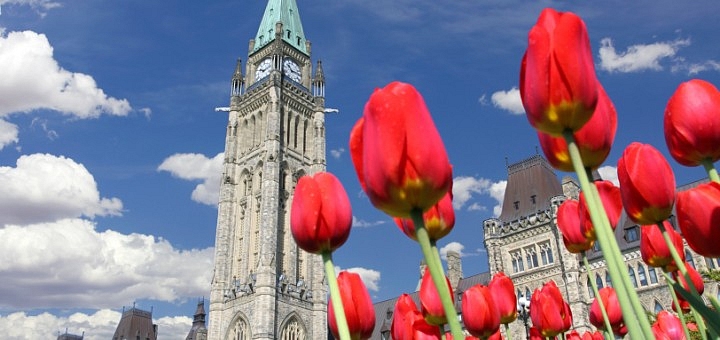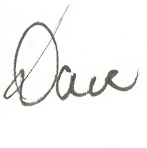AND WHY I NO LONGER FEEL LIKE I’LL HAVE TO HOLD MY NOSE WHILE DOING SO
You’ll notice that it’s been about a month since I wrote my last rant. At the time, we were vacationing on Salt Spring Island and, while I was ranting about Righties both federal and provincial, I was thinking about the federal election campaign. About how it was making me envious of the voters on Salt Spring, the other Gulf Islands, and that part of south Vancouver Island called Saanich. It occurred to me that if I lived on Salt Spring, I’d be able to turn my back on all three mainstream parties and their leaders and vote for Elizabeth May with an absolutely clear conscience. While I obviously wouldn’t be electing a government, I’d be voting for an MP who represents her riding excellently and a superb, committed parliamentarian. And I wouldn’t be throwing my vote away by voting Green on Salt Spring Island.
It seems that every blogger, columnist, journalist, political scientist, partisan hack and troll in Canada has been compelled to churn out a daily dose of verbage about the federal election campaign and it’s been going on now for 78 days! It’s sucking all the oxygen out of the room and I really don’t need to be adding to the problem.
Plus which, as a recovering politician my social media feed is clogged with invitations to this candidate’s event, entreaties to “like” that candidate’s campaign, pleas to vote strategically and reminders to vote for candidates in several ridings across this city and nationwide. God bless the inventor of call display — at least we’ve been able to avoid the robocalls.
So that’s part of the reason why I haven’t ranted in this space about the federal election. I really have no great insight that someone else hasn’t already shared with you, somewhere in the billions of words that have been written about it.
The rest is this: Like you, I suspect, I spent all but the last two weeks of this campaign not knowing how I was going to vote and, frequently, not wanting to vote for any of them.
Oh, I’ve known from the get-go who I wasn’t going to vote for. Hell would freeze over before I would vote for the Harper Conservatives.
Indeed, I voted NDP in the last four federal elections. I knew and respected Jack Layton. And the Liberals, too long in power and too corrupt as a consequence, needed to be made to wander in the wilderness like Moses, able to see the Promised Land but unable to cross over the Jordan. Like Moses, the Liberals needed to be denied for a time. In order to get real again. To rediscover some values, not the least of which is, “We’re here to serve you, not the other way around.” To redevelop a raison’d’etre other than clinging to power.
Fast-forward to this election. I’m about to refer to voting (or not) for the party leaders, which of course I can’t do and most of you reading this can’t do, either. The only people who get to vote for or against a party leader directly are those who live in a riding where the leader is running. But in every riding, every vote cast for a candidate representing a political party is also a vote for that party and, indirectly, its leader. Like it or not — and I really don’t like it, but it’s today’s reality — the leader is, for most voters, the embodiment of the party. Tomorrow, standing in the polling booth alone with their thoughts and that stubby little pencil, most people are going to mark their X beside the name of the candidate representing the party whose leader they like most, trust most, or creeps them out the least.
And you know what? That’s ultimately how I arrived at my decision.
For much of the campaign, I thought I’d probably end up voting for the party whose leader struck me as the least worst of the bunch, and since I already knew it wouldn’t be Dear Leader Harper, that left me with a choice: Mulcair or Trudeau. And to my way of thinking, each made a mistake of near-dealbreaking proportions before the campaign got underway. In Trudeau’s case, it was voting in favour of Bill C-51. In Mulcair’s case, it was his stand on separation.
So how was I going to get past that?
In terms of policy and vision, while either one would be, for me, a welcome change from Harper, the difference between the change each offers is a matter of degree and timing. The Not Ready question? Well, neither Mulcair nor Trudeau is “ready” in the sense that neither has prior prime ministerial experience. But if prior prime ministerial experience is a prerequisite for the job, Harper never would’ve landed it, either. Nor would Chretien…or Mulroney…or Trudeau the Elder…or Pearson…or any other prime minister right back to John A. Macdonald. It’s rather like becoming a parent: whether you’re ready is an academic question until the baby arrives. At that moment you’re a parent, ready or not. Deal with it.
Ultimately, it boils down to character. Otherwise it’s just a popularity contest, and on that basis Trudeau’s looks and hair should carry the day (and I really hope you’re gonna go deeper than that). Trust goes to the question of character. And here’s what the character of Tom Mulcair and Justin Trudeau looks like to me:
Not having met the man myself but knowing many who have, and having observed him as a journalist and recovering politician, here’s the impression I have of Tom Mulcair: a shrewd and experienced politician, an accomplished and tough inquisitor in Question Period, an autocrat, short-tempered, not easy to work with, smart, impressed by his own intelligence, and nakedly ambitious. He’s been making his living as a politician for 21 years, which in my experience means he’s been in the game long enough that he might not remember why he got into it in the first place. Most politicians start out wanting to leave the world a better place than they found it. Stay long enough, however, and you end up seduced by the power and the glory. What I haven’t mentioned yet is that Tom Mulcair can reportedly be charming when he sets his mind to it. I mention that because otherwise — ideology aside — Tom Mulcair strikes me as pretty much Harper-With-a-Beard. To me, the time has come when Canada cannot afford to replace one authoritarian, controlling, power-centralizing occupant of the PMO with another just because the new Caesar articulates an ideology a little more to our liking than that of the Caesar he wants to depose. Canada needs democrats. And I really don’t care if Stephen Harper and Thomas Mulcair have more intellectual heft than Justin Trudeau (although in neither case am I convinced that is so). I’m looking for the person who’s smart enough to know that they should never assume they’re the smartest one in the room.
Which brings us to Justin Trudeau — the alleged privileged one, the lightweight, the drama teacher, the Boy-Who’s-Just-Not-Ready, and again, these are my impressions:
This guy is absolutely not cut from the same cloth as Mulcair and Harper. He comes across as personable, approachable, likeable and warm. He appears to genuinely like and care about people. He appears to listen. He gives the impression that he cares more about the well-being of the nation and its people than about his own well-being. He seems optimistic, not angry — and given the volume of negativity his opponents have aimed his way, that’s impressive. He presents as sincere. I’ve not heard any stories about Trudeau having a hair-trigger temper or making his underlings feel like they’ve just been crushed beneath his boot heel. To be fair, it may just be that he has people who do the dirty work for him, but the fact that he doesn’t seem to have the need to do the dirty work himself — these days, in federal political leadership, that’s saying something.
And there’s this: honesty. That Trudeau asserts that he will run deficits for the next three years is nothing more than telling the truth. Because nobody can balance the budget any sooner without further gutting program spending, or raising your taxes, or both.
So, where does that leave me with respect to Trudeau and Mulcair’s respective errors of near-dealbreaking proportions? Well, Trudeau was wrong to support Bill C-51. But he said at the time that if elected, he would make significant changes to it. If he is elected, he’s unlikely to get a majority. Thus Mulcair will be in a position to force him to keep that promise as a condition of propping his government up. I think that’s a good thing. Further, whether or not I may be kidding myself, I can accept the argument that supporting C-51 was a rookie mistake, but not an irreversible one.
On the other hand, Tom Mulcair says 50% plus one vote is enough to allow Quebec to separate from Canada. In spite of the Clarity Act. In spite of the Supreme Court of Canada’s ruling. In spite of the fact that he grew up in Quebec, that he got elected provincially as a Liberal and served as a cabinet member in Jean Charest’s government because, he said, the Liberals were the only credible federalist party in Quebec. Given his age (he was born in 1954), he probably cannot remember a time when the sovereignty debate wasn’t raging in Quebec — except in the last decade or so, as the concept has become increasingly irrelevant to young Quebecois who are far more secure in their identity than their baby boomer parents ever were. Times have changed…and yet Mulcair wants to pick at the scab, create the “winning conditions”, and set the separatist zombie loose on the land again. I cannot imagine why a seasoned parliamentarian and lifelong Quebecker who professes to be a federalist would take such a position, unless it was a cynical political ploy to hang onto the seats Jack Layton won in Quebec by being honest and decent.
In supporting C-51, Justin Trudeau made a dumb mistake but one which can be undone, and I can forgive him for that. In lying down with separatists, Tom Mulcair threatens to unleash the forces that would destroy my country for personal political gain. That, I cannot forgive.
Tomorrow morning, I will vote Liberal.







One Comment